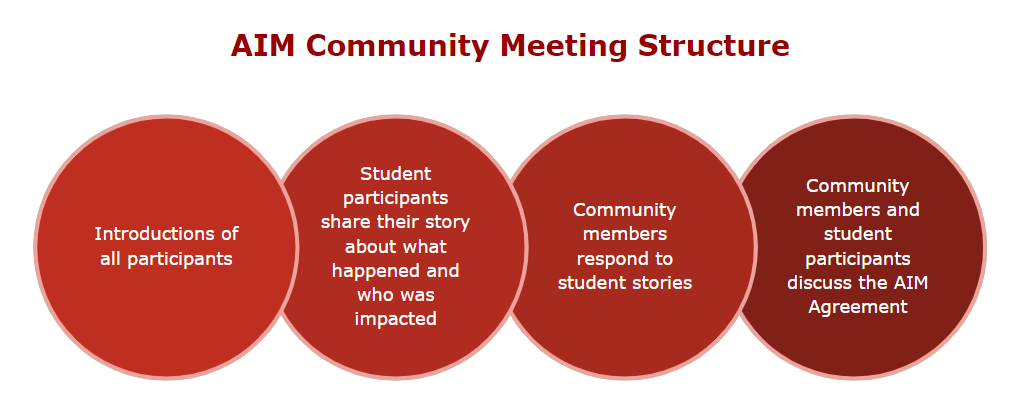
Community meetings include student participants and university volunteers (faculty, instructors, and staff). Through a facilitated dialog, student participants explain what happened and how their actions impacted others. University volunteers/community members discuss the impact of scholastic dishonesty on the University of Minnesota and the broader community. Student participants and community members then create a plan for the student to repair the harm that their actions caused. The plan, known as the AIM Agreement, may include the student participating in a workshop, class, or educational experience in order to gain a greater understanding of academic integrity.
Some ways students can prepare themselves for the meeting is to think about answers for the following questions:
- What factors led to this incident?
- Who do you think has been affected by your actions and how have they been affected?
- What are your thoughts about this incident now?
- What do you think should happen as a result of this matter?
- How can any harm caused by this matter be repaired?
Students must complete all components of the program in order for their record to be considered non-disciplinary. Failure to complete any part of the program will result in the disciplinary record being maintained per standard university policy.